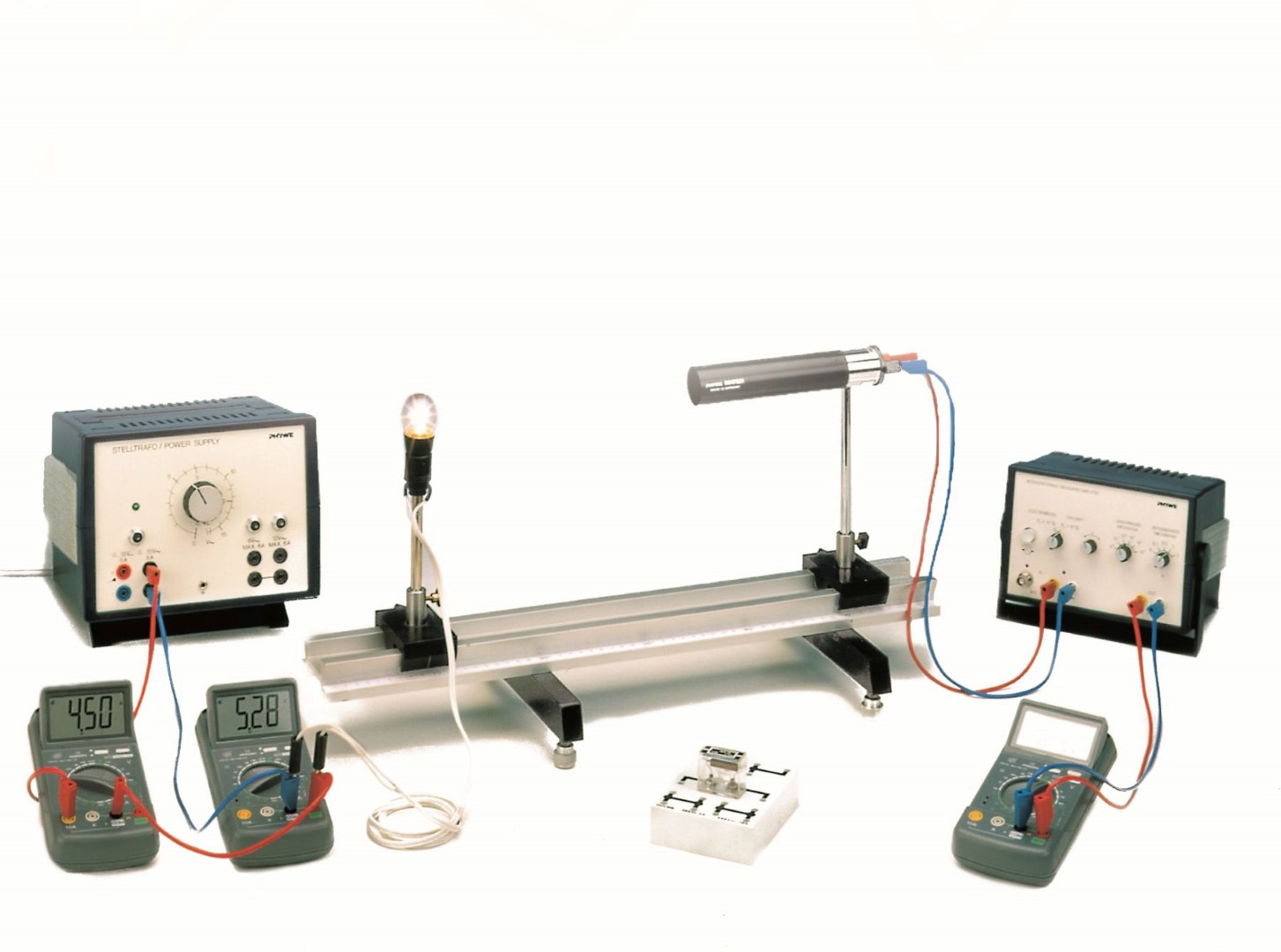Principle
According of Stefan-Boltzmann's law, the energy emitted by a black body per unit area and unit time is proportional to the power "four" of the absolute temperature of the body. Stefan-Boltzmann's law is also valid for a so-called "grey" body whose surface shows a wavelength independent absorption-coefficient of less than one. In the experiment, the "grey" body is represented by the filament of an incandescent lamp whose energy emission is investigated as a function of the temperature.
Benefits
- Classical experiment for studying black-body radiation
- High-precision measurement due to special, Moll-type thermopile
Tasks
- To measure the resistance of the filament of the incandescent lamp at room temperature and to ascertain the filament's resistance R0 at zero degrees centrigrade.
- To measure the energy flux density of the lamp at different heating voltages. The corresponding heating currents read off for each heating voltage and the corresponding filament resistance calculated. Anticipating a temperature-dependency of the second order of the filament-resistance, the temperature can be calculated from the measured resistances.
Learning objectives
- Black body radiation
- Thermoelectric e. m. f.
- Temperature dependence of resistances
